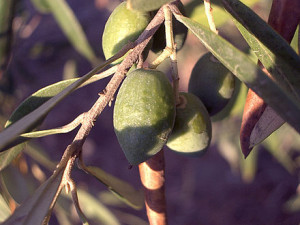Olea is a genus of about 40 species in the family Oleaceae, native to warm temperate and tropical regions of southern Europe, Africa, southern Asia andAustralasia. They are evergreen trees and shrubs, with small, opposite, entire leaves. The fruit is a drupe. Leaves of Olea contain Tricho sclereids.
Contents
Benefits
Olive oil is used to prevent heart attack and stroke (cardiovascular disease), breast cancer, colorectal cancer, rheumatoid arthritis, and migraine headache.
Some people use olive oil to treat constipation, high cholesterol, high blood pressure, blood vessel problems associated with diabetes, and pain associated ear infections,arthritis, and gallbladder disease. Olive oil is also used to treat jaundice, intestinal gas, and meteorism (swelling of the abdomen due to gas).
Some people also use olive oil to boost bacteria in the gut and as a “cleanser” or “purifier.”
Olive oil is applied to the skin (used topically) for earwax, ringing ears (tinnitus), pain in the ears, lice, wounds, minor burns, psoriasis, stretch marks due to pregnancy, and for protecting the skin from ultraviolet (UV) damage after sun exposure.
In foods, olive oil is used as a cooking and salad oil.
In manufacturing, olive oil is used to make soaps, commercial plasters and liniments; and to delay setting in dental cements.
Olive oil is classified, in part, according to acid content, measured as free oleic acid. Extra virgin olive oil contains a maximum of 1% free oleic acid, virgin olive oil contains 2%, and ordinary olive oil contains 3.3%. Unrefined olive oils with more than 3.3% free oleic acid are considered “unfit for human consumption.”
Olive oil that is mixed with a gas called ozone (ozonated olive oil) is promoted for everything from bee stings and insect bites to bacterial and fungal skin infections to cancer. The Food and Drug Administration (FDA) allows the use of ozone to fight bacteria on food, including meat and poultry, but the food industry has been slow to adopt it. Ozone is extremely unstable and must be produced on site. Topical olive oil products that are claimed to contain ozone are unlikely to remain stable during shipping. There are no clinically proven medical uses of ozone or ozonated olive oil. Antibacterial agents that are applied to the skin are a better choice.
Cautions
-
Olive oil is LIKELY SAFE when taken appropriately by mouth or applied to the skin. Olive oil can be used safely as 14% of total daily calories. This is about 2 tablespoons (28 grams) daily. Up to 1 liter per week of extra-virgin olive oil has been used safely as part of a Mediterranean-style diet for up to 5.8 years.
- Medications for diabetes (Antidiabetes drugs) interacts with OLIVE
Olive and olive oil might decrease blood sugar. Diabetes medications are also used to lower blood sugar. Taking olive oil along with diabetes medications might cause your blood sugar to go too low. Monitor your blood sugar closely. The dose of your diabetes medication might need to be changed.Some medications used for diabetes include glimepiride (Amaryl), glyburide (DiaBeta, Glynase PresTab, Micronase), insulin, pioglitazone (Actos), rosiglitazone (Avandia), chlorpropamide (Diabinese), glipizide (Glucotrol), tolbutamide (Orinase), and others.
- Medications for high blood pressure (Antihypertensive drugs) interacts with OLIVE
Olive seems to decrease blood pressure. Taking olive along with medications for high blood pressure might cause your blood pressure to go too low.Some medications for high blood pressure include captopril (Capoten), enalapril (Vasotec), losartan (Cozaar), valsartan (Diovan), diltiazem (Cardizem), Amlodipine (Norvasc), hydrochlorothiazide (HydroDIURIL), furosemide (Lasix), and many others.
Olive oil taken by mouth is well-tolerated. When applied to the skin, delayed allergic responses and contact dermatitis have been reported.
There is insufficient reliable information available about the safety of olive leaf, although so far olive leaf and fruit pulp have not been associated with significant side effects in clinical studies.
Olive trees produce pollen that can cause seasonal respiratory allergy in some people.
Special Precautions & Warnings:
Pregnancy and breast-feeding: There is not enough reliable information about the safety of taking olive products if you are pregnant or breast-feeding. Do not use amounts greater than the amount commonly found in foods.
Diabetes: Olive oil might lower blood sugar. People with diabetes should check their blood sugar when using olive oil.
Surgery: Olive oil might affect blood sugar. Using olive oil might affect blood sugar control during and after surgery. Stop taking olive oil 2 weeks before surgery.
Interactions
Other names
Acide Gras Insaturé, Acide Gras Mono-Insaturé, Acide Gras n-9, Acide Gras Oméga 9, Common Olive, Extra Virgin Olive Oil, Feuille d’Olivier, Green Olive, Huile d’Assaisonnement, Huile d’Olive, Huile d’Olive Extra Vierge, Huile d’Olive Vierge, Jaitun, Manzanilla Olive Fruit, Monounsaturated Fatty Acid, n-9 Fatty Acid, Oleae europaea, Oleae Folium, Olivae Oleum, Olive Fruit, Olive Fruit Pulp, Olive Leaf, Olive Oil, Olive Pulp, Olives, Olivo, Omega-9 Fatty Acids, Pulpe d’Olive, Salad Oil, Sweet Oil, Unsaturated Fatty Acid, Virgin Olive Oi
References
Source: Wikipedia, https://en.wikipedia.org/wiki/Olea

